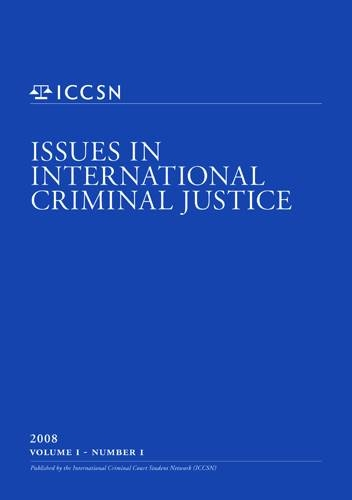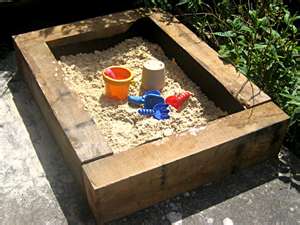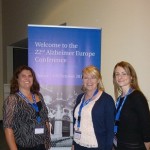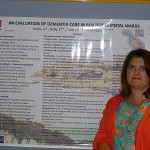Check out the video from PhD comics which can be found on the PGR pages of the blog; it is fantastic! If you want to understand Open Access it is one of the best over views I have seen and is also amusing to! Is this the shortest post ever? Wow its been a bad week!
/ Full archive
Public engagement and impact digest: news, events and opportunities
Café Scientifique, Tuesday 6th November at 7.00pm, The Fastest Men On No Legs: Oscar Pistorius, prosthetic limbs & the role of technology in elite sport – Bryce Dyer. Café Boscanova, Bournemouth. For more information, click here
ESRC Festival of Social Science: Bournemouth University is hosting an unprecedented four events!
Monday 5th November, London 2012: Was it Worth It? Interactive event for young people to review the impact of the Olympic and Paralympic Games both locally and nationally.
Wednesday 7th November, Pathways to Impact: ageing, diversity, connectivity and community ESRC Festival of Social Science launch of the National Lottery funded Methods to Diversity and a chance to see the award–winning short film, Rufus Stone
Thursday 8th November: What Constitutes Evidence for Copyright Policy? This interactive event offers the opportunity for discussion on evidence for copyright policy between social scientists, policy–makers and producers and users of copyright works.
Friday 9th November: Going For Gold: Leveraging Post Olympic Tourism Legacies. In the post-Olympic Games period, this workshop will explore the extent to which the 2012 Games remains able to deliver global networks to support tourism promotion overseas, to engage industry and government in supporting the growth of the visitor economy, and to maximise the impact of public investment in tourism.
Dates for the diary
25th January, 2013 – Multiculturalism and After: Has multiculturalism provided a durable ideal upon which a cohesive and tolerant society can be built? Or has it failed? This half-day conference will provide an opportunity to reflect upon the future of cultural difference in Britain – how do we experience it, what policy agendas does it call for, how can it be a source of creativity and dynamism within a positive national identity? Speakers include:
– Prof. Ted Cantle CBE, founder of the Institute of Community Cohesion, will talk about ‘Interculturalism’, his new book which proposes a new paradigm for social integration.
– David Aaronovitch, The Times columnist and author.
– Jamie Bartlett, Head of the Violence and Extremism Programme at DEMOS.
Please contact Prof Barry Richards for further details.
Public engagement activities further afield
If you are out of town, it is festival season! Check out the fantastic activities at Manchester Science Festival or Cambridge Festival of Ideas.
Public engagement opportunities
– Registrations for this year’s FameLab are still open! This is a really exciting competition to discover the new leading voice of science and engineering across the world and is designed to inspire young scientists and engineers to engage with the public.
– The National Co-ordinating Centre has opened a call for public engagement associates to help deliver and support their work. The NCCPE is looking for individuals that can support various areas of their work with a passion for public engagement.
– Workshop at Cambridge University on Communicating Research which is part of the AHRC Social Media Knowledge Exchange Project.
– NERC funded? If yes, NERC are offering public engagement training including media training and support on how to design public engagement activities.
Impact updates
– The ever useful LSE Impact of Social Sciences Blog, is publishing a series of advice notes on how to prepare impact case studies for REF. So far advice notes one and two are proving to be very popular!
– New report from the National Institute of Health Research: Impact of Patient, Carer and Public Involvement in Cancer Research
– HEFCE are looking for research users (deadline 5th December) to be used on the expert panel to assess the impact elements of REF. To help this, a handy guide for research users has been released, which is an excellent introduction to REF including impact elements.
Global Women’s (GLOW) Research Conference
The first Global Women’s (GLOW) Research Conference was held in Liverpool this week. The conference brought together 150 researchers and clinicians from across the globe to discuss women’s health in both low and high resource countries. Keynote speakers included France Donnay from the Bill & Melinda Gates Foundation, and Beverly Winikoff from Gynuity Health Projects.
 BU was well represented with poster presentations from Vanora Hundley, Professor of Midwifery, and Emma Pitchforth, Visiting Fellow.
BU was well represented with poster presentations from Vanora Hundley, Professor of Midwifery, and Emma Pitchforth, Visiting Fellow.
Vanora’s presentation examined the Use of oral misoprostol to prevent postpartum haemorrhage in home birth settings in low resource countries; a topic that has been the subject of considerable controversy in recent weeks. Emma’s presentation looked at Evidence response mechanisms in reproductive, maternal, newborn and child health in Asia and the Pacific.
One of the unique features of this conference was the mix of presentations. Presenters came from a variety of disciplines and alongside the well known international speakers were oral presentations from undergraduate students and early career researchers. This was a great opportunity to share experiences and build collaborations, and I would recommend that both staff and students look out for next year’s call for abstracts.
Register Online to attend Bournemouth University Dementia Institute Internal Conference
 BUDI continues to work towards a truly collaborative approach to dementia and with this in mind our first internal conference will take place on the 31st January. The theme of this conference is creative collaboration. We are keen to explore new innovative approaches to all aspects of living with dementia and caring for people with dementia. If you have an idea or a piece of work that you think could work well or has a potential link with dementia, then this is the opportunity to showcase your idea. Abstracts are invited for posters and presentations and should be submitted by Friday 16th November at 12noon.
BUDI continues to work towards a truly collaborative approach to dementia and with this in mind our first internal conference will take place on the 31st January. The theme of this conference is creative collaboration. We are keen to explore new innovative approaches to all aspects of living with dementia and caring for people with dementia. If you have an idea or a piece of work that you think could work well or has a potential link with dementia, then this is the opportunity to showcase your idea. Abstracts are invited for posters and presentations and should be submitted by Friday 16th November at 12noon.
Abstracts should be no longer than 250words and the details can be found on the staff development page.
Presentations will be 10mins duration with five minutes allowed for questions.
Posters should be of A0 portrait size and an award will be given for the best poster on the day.
More to follow shortly.
Project Manager BUDI
Prof. Anthea Innes Inaugural Lecture
 Anthea’s inaugural, to be held on 14th November, entitled “Dementia: personal journey to policy priority” is currently fully booked. If you would like to be added to the waiting list please send an email to Michelle O’Brien at mobrien@bournemouth.ac.uk.
Anthea’s inaugural, to be held on 14th November, entitled “Dementia: personal journey to policy priority” is currently fully booked. If you would like to be added to the waiting list please send an email to Michelle O’Brien at mobrien@bournemouth.ac.uk.
BUDI are also holding a BU internal conference entitled “Creative collaboration” on 31st January and would welcome your attendance (please see BUDI website http://blogs.bournemouth.ac.uk/dementia-institute/ for further details or contact Patricia McParland, BUDI Project Manager on pmcparland@bournemouth.ac.uk.)
Marie Curie in Horizon 2020 – what will it look like?
 As regular EU blog readers will know, I think Marie Curie Fellowships are the perfect way to start your EU career. You can bring a shining talent over from anywhere in the world, from academia or industry to undertake research and you can visit an organisation/ university anywhere in the world to undertake research. Needing only one other partner to be involved, it allows for the establishment of a great contact who can help branch out to networks and also enables you to have some research you are interested in, done.
As regular EU blog readers will know, I think Marie Curie Fellowships are the perfect way to start your EU career. You can bring a shining talent over from anywhere in the world, from academia or industry to undertake research and you can visit an organisation/ university anywhere in the world to undertake research. Needing only one other partner to be involved, it allows for the establishment of a great contact who can help branch out to networks and also enables you to have some research you are interested in, done.
The final calls for Marie Curie under FP7 are in January 2013 and the scheme is definitely here to stay for Horizon 2020, albeit with a slightly amended name Marie Skłodowska-Curie Actions.
The programme will contain similar schemes, but these will be banded together and made more simple.
*Innovative Training Networks (ITN) will be aimed at training early stage researchers
*Individual Fellowships (IF) will be aimed at experienced researchers
*Research and Innovation Staff Exchange (RISE) will be aimed at the exchange of staff and knowledge transfer
*COFUND will be aimed at stimulating excellence in regional, national and international programmes.
There may also be a pilot strand under the first set of calls released in 2014 within the IF scheme; the Dual Careers Strand. This would enable an applicant with a spouse working in research to apply for funding for their spouse to hold a fellowship either in the host institution or an institution in the host country. This is still in development but is an exciting possible development.
NEW Online Ethics Checklist Launches on 1 November!!
 I’m pleased to announce that the new online ethics checklist is developed and ready to go live! Our IT developers have done a fantastic job creating an easy, collapsible, web-based form to replace our current paper checklist; the best part is that the form is collapsible, so it is entirely researcher specific. Not only will this online form streamline the submission process across the University, it will also provide a central repository for all approved checklists to facilitate the improvement of compliance within the Schools. The new online ethics checklist will soft launch on 1 November for two months of beta testing and fully launch on 1 January 2013. This two month period will give us time to beta test the checklist with a handful of student groups across BU to ensure all the technical bugs are sorted out.
I’m pleased to announce that the new online ethics checklist is developed and ready to go live! Our IT developers have done a fantastic job creating an easy, collapsible, web-based form to replace our current paper checklist; the best part is that the form is collapsible, so it is entirely researcher specific. Not only will this online form streamline the submission process across the University, it will also provide a central repository for all approved checklists to facilitate the improvement of compliance within the Schools. The new online ethics checklist will soft launch on 1 November for two months of beta testing and fully launch on 1 January 2013. This two month period will give us time to beta test the checklist with a handful of student groups across BU to ensure all the technical bugs are sorted out.
Would you like to be involved in the beta testing? If so, please get in touch with me and we’ll set everything up! I’ve already had a handful of volunteers to test the checklist, but please let me know if you’d like to get involved. Additionally, please let me know if you’d like a sneak peek of the online checklist – I’m more than happy to give you a quick tutorial.
The link to the new checklist will be made available on the Research Ethics website as well as being placed on myBU.
Textbook translated into Greek
Just received in the post a copy of one of the textbooks for medical students I have edited, and I can’t read it. Elsevier wrote a cover letter with the book to inform us (co-editors and I) that the third edition of our successful textbook Psychology & Sociology Applied to Medicine: An Illustrated Text has been translated into Greek (see http://onlinebooks.parisianou.gr/index.php?page=shop.browse&category_id=20&option=com_virtuemart&Itemid=17&vmcchk=1&Itemid=17). A long time ago I did one year of Ancient Greek in High School in the Netherlands so I can recognise some of the Greek letters, but that’s all. The original third edition (in English) was published in late 2010 (http://www.bournemouth.ac.uk/hsc/news/2010/sep/contentonly_1_5404_5404.html). The Greek edition was apparently published late 2011. Interestingly, since the textbook’s contributors and editors have signed over the copyright of their work to Elsevier the negotiations have been without our knowledge between the publishers Elsevier and Parisianou (Athens). As we did not know this was happening we received a nice unexpected surprise.
What fascinates me is why a translation into Greek? The textbook sells well in the UK and Ireland and it appears to sell well in English-speaking countries like Australia and New Zealand and in North-West Continental Europe. Greece is some economic, political and social upheaval and the process of translation costs money and the market for a textbook in Greek is considerably smaller than for one in English. Perhaps Greek medical students find it more difficult to study in English than other Continental students?
Professor Edwin van Teijlingen
School of Health & Social Care
The Haunter
Joe Flintham (Media School) and Andy Pulman (Health and Social Care) recently received funding of £2000 from the Research Development Fund to help push forward with a project called ‘The Haunter’. This collaborative work with Tim Wright (digital writer and Visiting Fellow in the Media School) is an experimental narrative piece which brings together site-specific stories, walks in landscapes and homebrew electronics, in order to explore Thomas Hardy’s poetry.

The Haunter is a live event in which participants are tasked with carrying a haunted box around a prescribed route in the environs of Dorchester. At key points, the box, rumoured to be the same one which contained Thomas Hardy’s heart before it was interred at the graveyard at Stinsford, recites poetry written by Hardy following the death of his first wife Emma. The walkers’ journey through poetry and landscape leads them to encounter feelings of grief and absence, to unveil abandoned dreams and stories ended, and perhaps to reflect on lost or neglected love in their own lives.
In the immediate experience, the walk explores themes of bereavement and regret, and the interplay of places and memories, but it is also an experiment in new hybrid forms of narrative: the experience created by ‘The Haunter’ draws on new opportunities offered by site-specific media and the role that place and environment can play in the telling of a story; social and participatory dramatic experiences in which audiences play an embodied role in the enactment of a story; and the affective possibilities opened up by the interaction with physical objects.
In order to make these narrative explorations possible, a further hidden layer of experimentation is necessary: to build hybrid objects which are at once familiar and humane (such as hand-crafted wooden boxes) and at the same time, smart and technologically equipped (context-aware and digital-media capable). In order to deliver the experience of The Haunter, it has been necessary to develop custom electronic devices crossed with antique knick-knacks. This harnesses the smarts available in the newest mobile phones, but wraps their powers into a century-old world of caskets and poems, sea-side courtship memories and tracks through Hardy’s Wessex.
The result is a participatory narrative whose writing, delivery and design is built with the necessary openness to collaboration and experimentation: the walkers encounter not only the box and its poetry, but also landscape, weather, and each other; the writers of the story must interweave the given words of the poems and the medium-specific affordances of phsyical devices with the vagaries of walker behaviour; and the makers must match the predetermined world of system code and electronic hardware capacities with the richly unpredictable world of human behaviour and narrative imagination.

The RDF funding has facilitated the development of a prototype and specifications for a device that can be used to deliver site-specific media experiences that are applicable in a variety of settings such as heritage projects, health-walking and locative story-telling. The funding has also made it possible to allow students to learn the kinds of disciplines involved – physical computing, GPS systems and electronics, etc. Finally, we are currently exploring opportunities with potential partners who can support us developing the project further.
More information:
Tim Wright – Location-based Storytelling
Andy Pulman – Health Walking
Joe Flintham – Hauntology
Prof. Hundley Associate Editor BMC Pregnancy & Childbirth
Congratulations to BU Prof. Vanora Hundley who has been invited to become Associate Editor for BMC Pregnancy and Childbirth. BMC Pregnancy & Childbirth is an international journal with Open Access and it has a good Impact Factor (currently 2.83) in its field. More details of BMC Pregnancy & Childbirth can be found at http://www.biomedcentral.com/bmcpregnancychildbirth/
Prof. Hundley joins Prof. Edwin van Teijlingen as Associate Editor, giving Bournemouth University a very good representation on the editorial team.
More about Prof. Hundley: http://uk.linkedin.com/pub/vanora-hundley/16/b40/39b
REF Updates
Are you new to REF?
If you are completely new to REF, or even if you know about REF but would like to find out more, we can recommend the ‘REF2014: A brief guide for research users’ document as a general introduction to what REF is and what it means.
You can find the document here.
BU Staff Circumstance Disclosure Form – DEADLINE 31 October 2012
For all REF eligible staff, it is really important that you read the BU REF Code of Practice (please click on the ‘REF’ tab from the menu bar at the top to access the document) in order to fully understand the processes and procedures employed by BU in preparing for the REF2014 assessment. The BU Staff Circumstances Disclosure process is especially important to you if you are an Early Career Researcher, you work part-time, you have been on leave or on a career break. For more information on how this applies to you, and also all other related documents, please click on the ‘REF’ tab on the menu at the top of the page. If you are still unsure after reading all the relevant documents and have questions you would like to ask, please send an email to: refcircumstances@bournemouth.ac.uk
REF Frequently Asked Questions Updated
The FAQs section of the REF official website has recently been updated. You can click on this link to see them.

Justice for Survivors at the International Criminal Court – PhD student’s publication success
 Twelve months into her PhD, Law research student Ellie Smith has published an article entitled ‘Investigating Rape at the International Criminal Court: The Impact of Trauma’ in the Issues in International Criminal Justice Journal. Ellie’s current research focuses on the scope for narrative truth at the International Criminal Court, survivor perceptions of justice, and the nature of rehabilitation as a legal remedy for survivors of gross human rights violations. A second article is currently under review with the A-rated Journal of International Criminal Justice.
Twelve months into her PhD, Law research student Ellie Smith has published an article entitled ‘Investigating Rape at the International Criminal Court: The Impact of Trauma’ in the Issues in International Criminal Justice Journal. Ellie’s current research focuses on the scope for narrative truth at the International Criminal Court, survivor perceptions of justice, and the nature of rehabilitation as a legal remedy for survivors of gross human rights violations. A second article is currently under review with the A-rated Journal of International Criminal Justice.
Ellie joined the University on a full-time studentship. She is a Visiting Research Fellow at the Centre on Human Rights, University of East London, and has 10 years of experience in the conduct of multi-disciplinary (legal and clinical) and intersectional research in the field of justice for victims of gross human rights violations, including for eight years as Lead Researcher for the Medical Foundation for the Care of Victims of Torture. She is a member of the Victims’ Rights Working Group to the Coalition for the International Criminal Court, and has also served as a member of the Expert Advisory Panel to the British Home Office on the Trafficking of Women. Ellie achieved a Degree in law from Girton College, Cambridge University (1992) and a Masters Degree in Law from the London School of Economics (2000). She qualified as a solicitor in 1994.
You can access a copy of Ellie’s article online here: http://www.iccsn.com/IICJ2012.pdf
School of Tourism’s Adele Ladkin on her FIF Staff Mobility Project: Visiting the United Nations World Tourism Organisation (UNWTO) Themis Foundation in Andorra
 Professor Adele Ladkin has received £5,000 funding from the FIF staff mobility strand to undertake two week long visits to the UNWTO Themis Foundation Headquarters in Andorra.
Professor Adele Ladkin has received £5,000 funding from the FIF staff mobility strand to undertake two week long visits to the UNWTO Themis Foundation Headquarters in Andorra.
As part of its Capacity Building Programme, the UNWTO.Themis Foundation provides educational courses and workshops for tourism industry experts. These are in a range of subjects, for example tourism marketing, adventure tourism and sustainable tourism. Because of the nature of these courses and the demand for different topics, subject experts from the tourism industry and public sectors are recruited as tutors to deliver the courses.
Adele and Ms Sònia Figueras, the UNWTO.Capacity Programme manager at the UNWTO Themis Foundation are engaged in collaborative work to produce a teaching guide and intensive training course for tutors responsible for delivering tourism capacity building courses and workshops as part of the UNWTO.Capacity Programme. The Themis Foundation enables UNWTO Member States to devise and implement education, training and capacity building policies, plans and tools that fully harness the employment potential of their tourism sector and effectively enhance its competitiveness and sustainability. Working with Ms Figueras, Adele will provide input into teaching methodologies commonly used in tourism programmes.
The collaboration has arisen as the School of Tourism is part of the Themis TedQual Network and aims to support activities undertaken in the areas of education, training and tourism capacity building. The impact of the collaboration will be practical through the dissemination and use of the teachers guide and the training course by highly experienced tourism subject experts. The collaboration and pedagogic approach will also be presented at an appropriate tourism educator’s conference. This knowledge exchange opportunity demonstrates the Schools commitment to supporting tourism education initiatives.
Adele will be spending time in Andorra at the headquarters of the Themis Foundation to work directly on the course materials as well as on-line collaborative working. The visits will enable Adele to spend a concentrated period of time working on the project, and will also give her further insight into the activities of the Themis Foundation. She plans to undertake the first visit later this year – weather permitting as the mountain roads into Andorra are often covered in snow!
Lifelong Health & Wellbeing Sandpit – places still available
 Feedback from BU staff who have participated in academic sandpits is always positive: “Sandpits stimulate creative thinking and encourage you to step outside of your comfort zone. They are an opportunity to learn from others whose approaches to research may be different from your own” – Prof. Adele Ladkin, School of Tourism, EPSRC Sandpit Participant
Feedback from BU staff who have participated in academic sandpits is always positive: “Sandpits stimulate creative thinking and encourage you to step outside of your comfort zone. They are an opportunity to learn from others whose approaches to research may be different from your own” – Prof. Adele Ladkin, School of Tourism, EPSRC Sandpit Participant
Sandpits provide an intensive, interactive and free-thinking environment. A group of participants from a range of disciplines and backgrounds use this space to get together to become immersed in a collaborative thinking processes in order to construct innovative approaches to issues or questions.
As sandpits involve diverse participants, they force catalysation, collision and collaboration. This produces unique and innovative outputs and fosters new partnerships.
We are facilitating with expert bid writer Dr Martin Pickard of GrantCraft, three 1-day sandpits at BU which focus around relevant Research Council UK cross-thematic areas. The first is Lifelong Health & Wellbeing Sandpit which is being held on 24.10.12
Attending this sandpit will:
- facilitate you networking with other researchers across BU who you wouldn’t normally come in to contact with
- allow you to get a fresh perspective from a different discipline on the same issue
- enable you to be part of a multidisciplinary team who potentially bids for Research Council funding
- give you a truly unique experience
Spaces are limited for each of the sandpits and you can register for a place on the Staff Development website.
Passionate about science? Why not enter a Famelab competition
 If you think you can explain a concept in science, mathematics or engineering in just three minutes, enter a Famelab competition near you!
If you think you can explain a concept in science, mathematics or engineering in just three minutes, enter a Famelab competition near you!
- You could win a place on their expenses paid master class to develop your public engagement skills
- Previous contestants have gone on to travel the globe, inspire school children and feature on radio and TV
- £1000 prize money + £750 to spend on a public engagement activity
For full details, including competition closing dates and terms and conditions of entry, visit the Famelab website and view the FameLab Science Poster

Value of conference attendance?


 October is the month of the annual Alzheimer Europe (www.alzheimer-europe.org) meeting. This year three BUDI team members attended the rather nice setting in Vienna a draw for everyone, although we all had very different agendas and expectations. Alzheimer Europe is one of my personal favourite conferences as I’ve been going for years and it creates the opportunity to meet with new and catch up with a range of international colleagues, and is actually the main reason I go to these kind of events; yes it is good to present the work, and as a team we had two posters and three oral presentations this year, which is not bad for an Institute only in existence for 6 months, but it is the networking aspect that provides inspiration and creates new ideas and new collaborations that motivates me to go to these kind of events.
October is the month of the annual Alzheimer Europe (www.alzheimer-europe.org) meeting. This year three BUDI team members attended the rather nice setting in Vienna a draw for everyone, although we all had very different agendas and expectations. Alzheimer Europe is one of my personal favourite conferences as I’ve been going for years and it creates the opportunity to meet with new and catch up with a range of international colleagues, and is actually the main reason I go to these kind of events; yes it is good to present the work, and as a team we had two posters and three oral presentations this year, which is not bad for an Institute only in existence for 6 months, but it is the networking aspect that provides inspiration and creates new ideas and new collaborations that motivates me to go to these kind of events.
Patricia McParland is BUDI’s project manager, she has presented at a few dementia conferences in the last 3 years but for this conference her main concern was to ensure her cutting edge work doctoral work, that she is in the final throes of writing up, on public awareness of dementia is getting out there as this is an area of increasing policy concern both in the UK and internationally and many are starting to work in this particular area. As well as presenting a poster on her doctoral work that received positive attention, she presented a paper reporting on one of BUDI’s project about Dementia Friendly Tourism. The concept of Dementia Friendly Tourism has caught the imagination of many we speak to about our dementia work and this proved to be the case again in Vienna. Colleagues from France, Spain and Jersey were particularly interested in this project and keen to explore how these ideas could be applied to their regions; we will see what transpires over the coming months in the way of collaboration but this is a nice example of the added value of going to a conference.
Clare Cutler is a research assistant in BUDI and has just started her PhD exploring experiences of war and dementia, as an Early Career Researcher Clare was thrilled to be attending her first interational conference, and her excitement was contagious! but she was also rather anxious about giving her first presentation on one of BUDI’s projects, GRIID, Gateway to Rural International Innovations in Dementia, on behalf of an international team. She needn’t have worried as she went down a storm; mainly because she said at the beginning that she was nervous, this was her first presentation and then let out a big sigh as she finished. This created a huge amount of goodwill to her personally as well as her giving a presentation on an innovative interational partnership project. We had received the support of Alzheimer Disease International (www.alz.co.uk) to conduct part of this study and the opportunity for further discussion about working together to target rural areas and developing countries is another of the added value benefits that being in Vienna brought for me this year.
I presented a paper on a recently completed evaluation of a telehealth project to diagnose and follow up people with dementia living on the Shetland Isles and Grampian, rural areas of Scotland. The added value of this work relates to the INTERDEM (www.interdem.org) meeting that was held the day before the conference. (This is another example of added value by the way, going to other meetings around a conference.) Interdem is an application/invite only pan European network of highly active psychosocial researchers in the dementia field; as a member I was also able to take my BUDI colleagues in their student roles, a new doctoral and just about to complete doctoral student, to this full day meeting and they found this an amazing experience as many of the ‘names’ of long established dementia academics are part of this group which is always a buzz to meet people you’ve quoted for the first time, who offered real warmth, enthusiasm and support for their work. The Interdem meeting this time round was a mix of presentations (including one from the task force on technology and dementia that I co-lead) and working groups developing bid ideas, collaborative papers and general brain storming about how to take forward new work in the field. The technology task force has been working on a bid around exergaming and dementia and we used the lunchtime slot to meet to work up our ideas further (more added value) as well as updating Interdem members about our progress with this bid during the meeting itself. But we also discussed new bid ideas and telehealth, the focus of my Alzheimer Europe paper, was one of the favoured topics; one of our jobs now is to see the details of a long-awaited funding call (JPND) due out December 2012 and get writing another EU bid. We also agreed to write a collaborative paper on technology and dementia, but a successful meeting is one that generates new work from my point of view!
My other bit of dissemination work was a poster about ongoing research evaluating dementia care in Maltese hopsital wards. The added value about this relates to the conference venue being in Malta next year and I am sure this has partly influenced the invitation, of the Maltese Dementia Society member who is a long standing collaborator of mine as well as being the local organisor for the 2013 meeting, for me to give a plenary there next year!
So in all, the value of going to conferences for new researchers, is undoubtedly to present their work, to meet esteemed colleagues and the resultant ‘buzz’ this brings, to learn about other research in the field and to start their own networks (a good example of this is Patricia joining a writing team for a methods related paper, more added value!). For me it is a chance to catch up with people and to discuss potential new collaborations. In previous years it has also been about keeping a profile of the work of my team, this year it was about starting to create a profile for a new BU team to an international audience. I am pleased to report that all boxes were ticked this time round!
What do you do dad?
It has been a busy week and it is fast disappearing and I have yet to post this week. I also need to get this in before the week’s end since its earth science week!
This is the week when it’s safe to admit ones love of checked shirts, woolly jumpers, rocks, dinosaurs, fossils and mud! More seriously it is one of the many public engagement weeks focused on specific disciplines which are emerging; it just happens to be mine this week! Although in practice I don’t always admit to being a geologist, having be first trained as physical geography I do think of myself as one. My true love is the study of landscape – geomorphology – which lies at the intersection of geology and geography and is a love that endures to this day. Reconstructing ancient landscape is my thing, whether they are landscapes of ice or the landscapes that our ancestors once walked across. As a child my imagination rendered forts and castles, linked to tales of derring-do, from the rocks and cliffs before me. As I grew up I found that geomorphology allowed me to play the same games of imagination, but instead of tales of adventure, the aim was to build pictures of ancient landscape based on geological evidence, which had to be first found and then interpreted. The creations of my imagination may now be a little more sophisticated than those of my youth, shaped by evidence and scripted in the language of geology, but imagination spawned by landscape still holds as the central core of what geology means to me. Imagination, innovation, creative expression are the things that lie at the core of all research whether geological or not and are worth celebrating when one can in my view.
My parting shot is to share with you the punch line of a Calvin and Hobbes cartoon about geology. Picture the first window in which a parent is doing homework with their child and they are arguing about maths. “Why do I need to know about maths” the son cries. The parent responds “well you need maths for all jobs”. Predictably the son responds no you don’t so the parent asks the son to name a job that doesn’t. The child responds ‘geologist’ to which the parent says ‘well that’s not a proper job is it!’ But still it’s a job I love!
Are we born to yawn?
Yawning consistently poses a conundrum to neurologists and neuroscientists. Increasingly, evidence is found to link neurological disorders through the commonality of yawning episodes and contagious yawning. Despite discrete incidences (such as parakinesia brachialis oscitans) in brain stem ischaemic stroke patients, there is considerable debate over the reasons for yawning, with the mechanism of yawning still not fully understood. Cortisol is implicated in the stress response and fatigue; repetitive yawning may be the link between neurological disorders and with a strong correlation between yawning and a rise in cortisol levels. Evidence has now been found in support of the Thompson Cortisol Hypothesis that proposes cortisol levels are elevated during yawning [1]. Additional data is in press, and further research is planned with longitudinal consideration to neurological disorders such as multiple sclerosis and stroke. Funding for such initiatives is currently being sought.
[1] Thompson, S.B.N., & Bishop, P., 2012. Born to yawn? Understanding yawning as a warning of the rise in cortisol levels: randomized trial. Interactive Journal of Medical Research, 1(5), e4:1-9. Doi: i-www.jmr.org/2012/e4/












 New CMWH paper on maternity care
New CMWH paper on maternity care From Sustainable Research to Sustainable Research Lives: Reflections from the SPROUT Network Event
From Sustainable Research to Sustainable Research Lives: Reflections from the SPROUT Network Event REF Code of Practice consultation is open!
REF Code of Practice consultation is open! ECR Funding Open Call: Research Culture & Community Grant – Apply now
ECR Funding Open Call: Research Culture & Community Grant – Apply now ECR Funding Open Call: Research Culture & Community Grant – Application Deadline Friday 12 December
ECR Funding Open Call: Research Culture & Community Grant – Application Deadline Friday 12 December MSCA Postdoctoral Fellowships 2025 Call
MSCA Postdoctoral Fellowships 2025 Call ERC Advanced Grant 2025 Webinar
ERC Advanced Grant 2025 Webinar Update on UKRO services
Update on UKRO services European research project exploring use of ‘virtual twins’ to better manage metabolic associated fatty liver disease
European research project exploring use of ‘virtual twins’ to better manage metabolic associated fatty liver disease